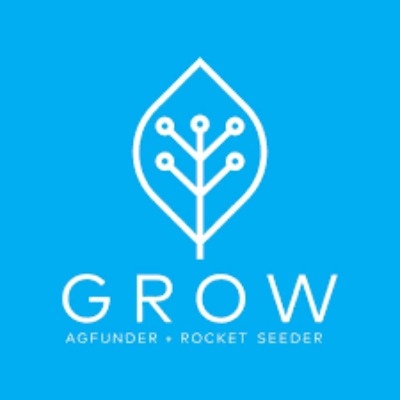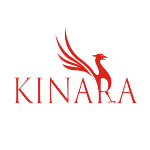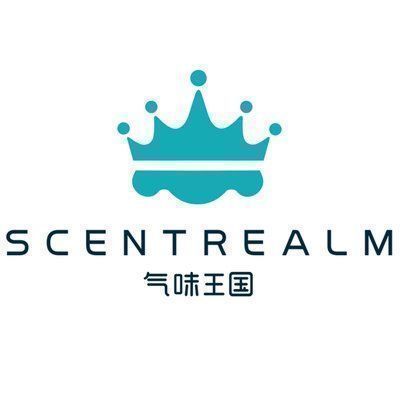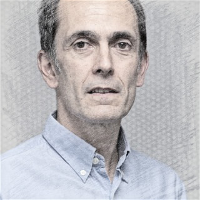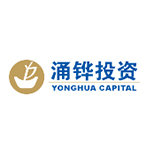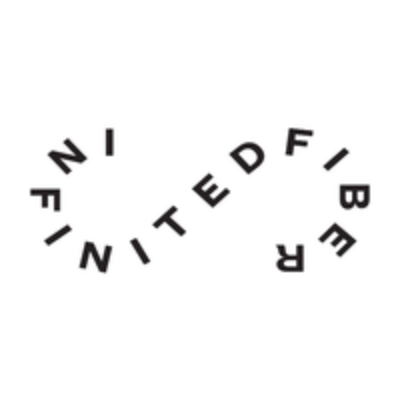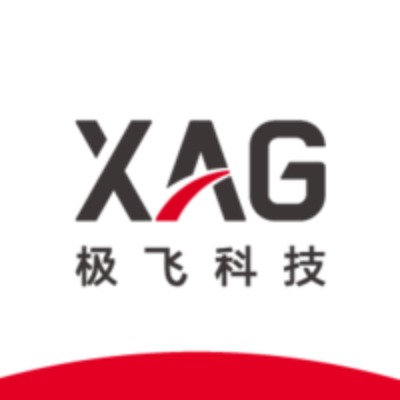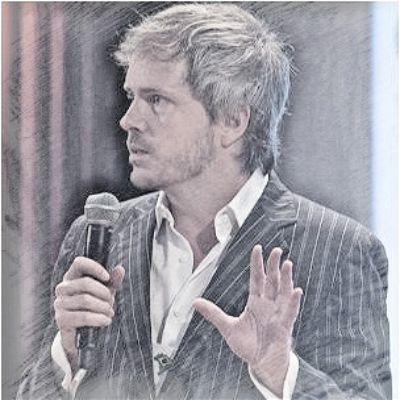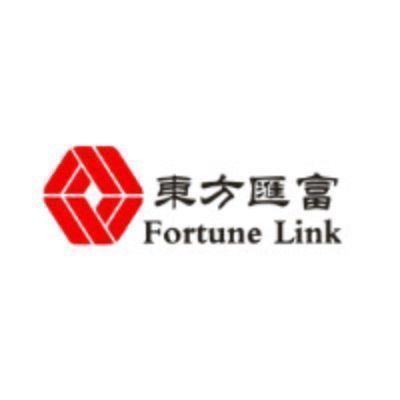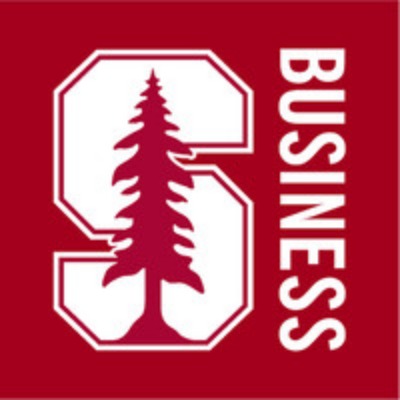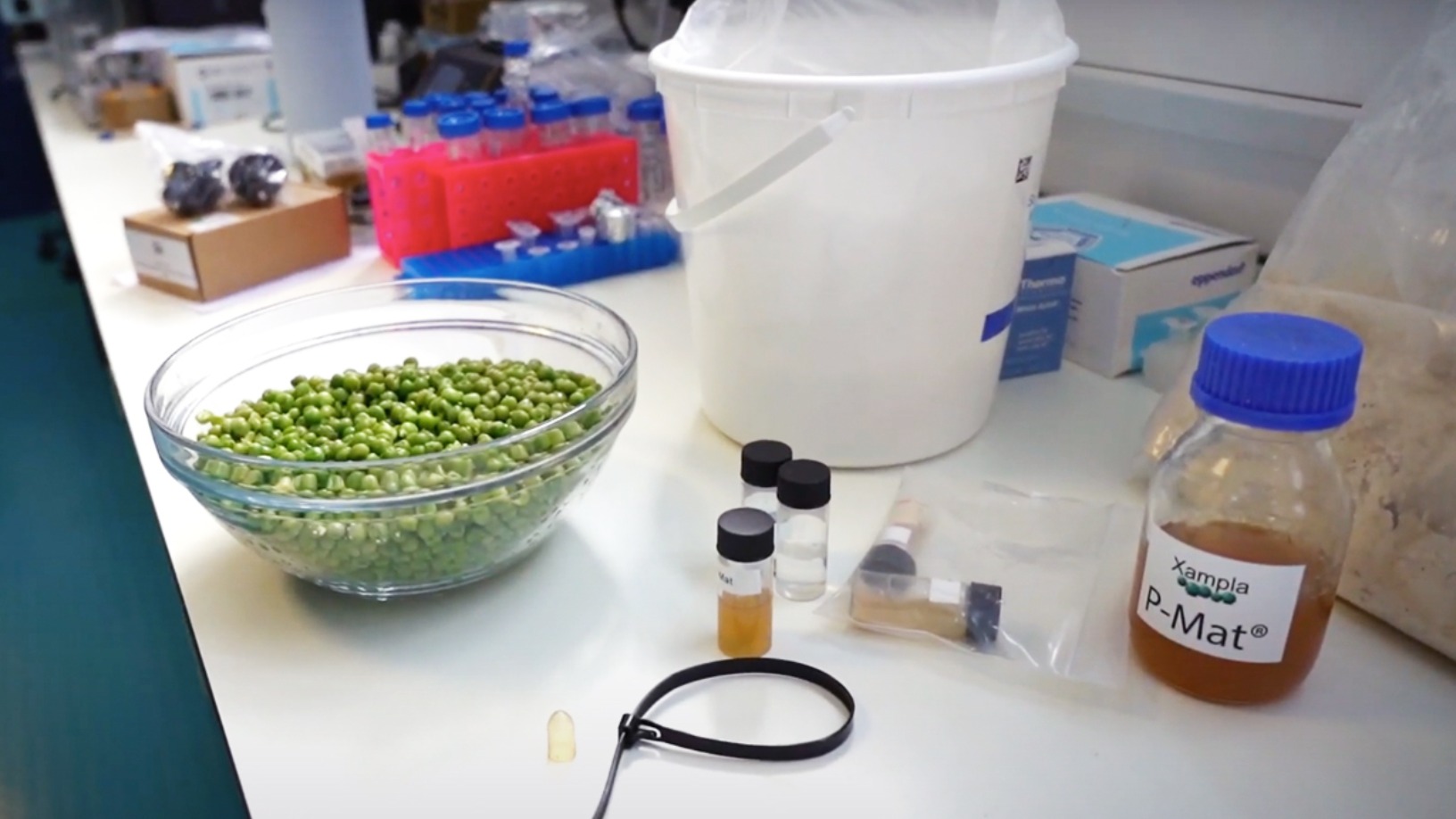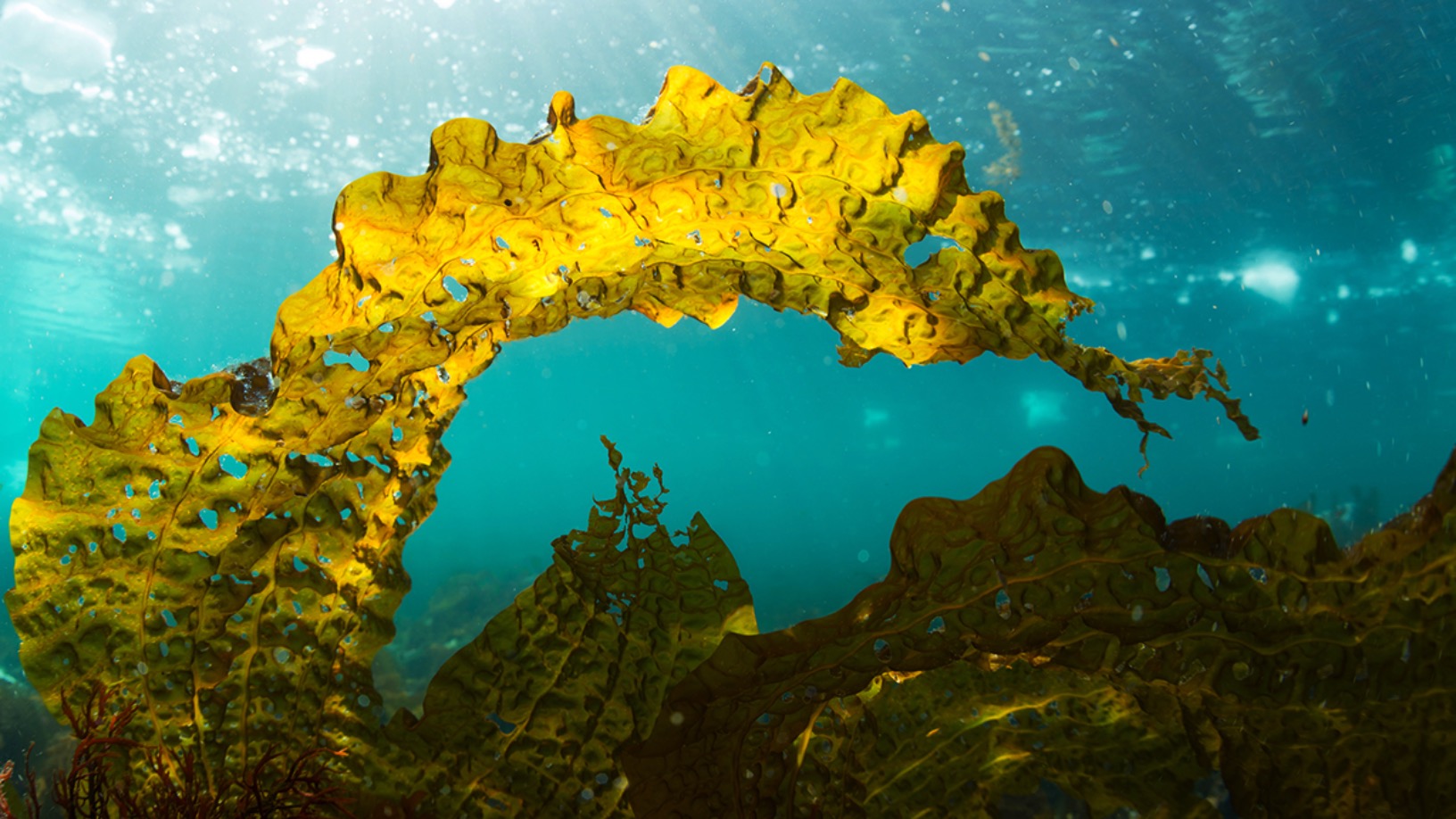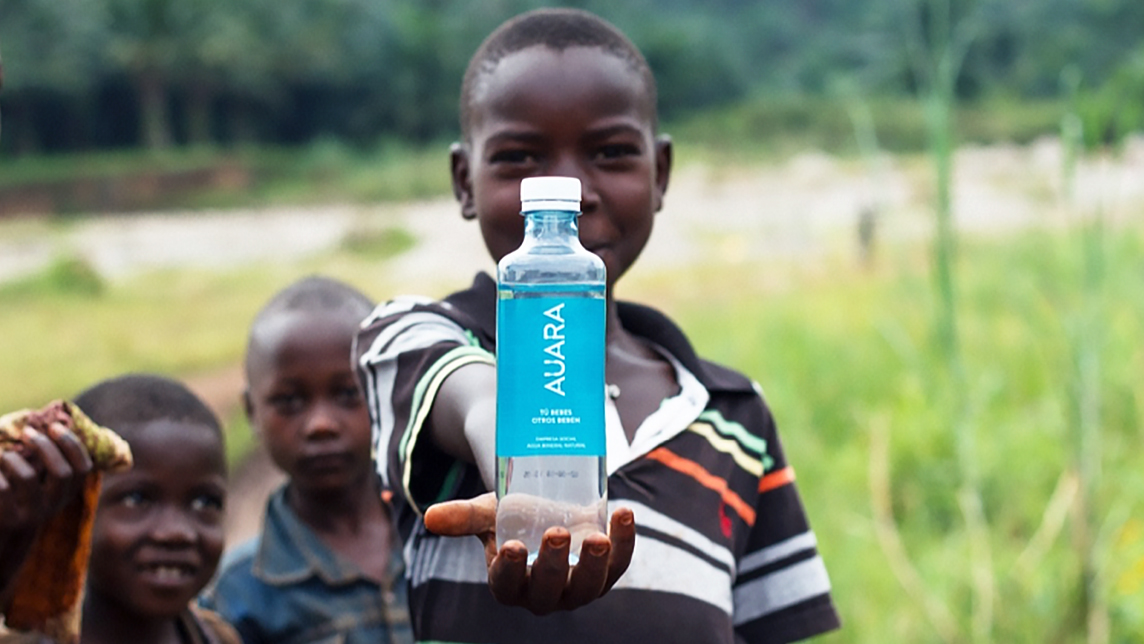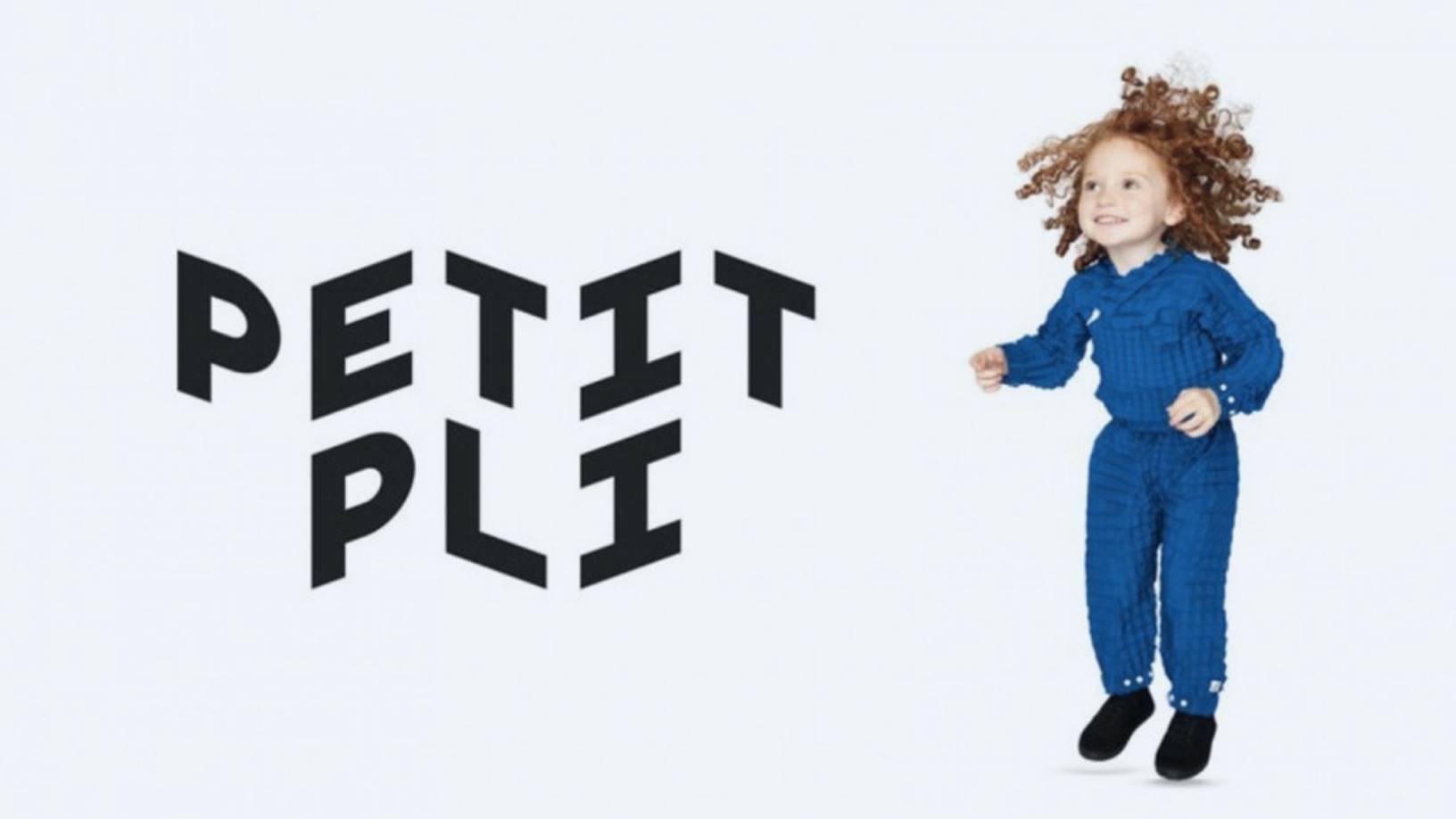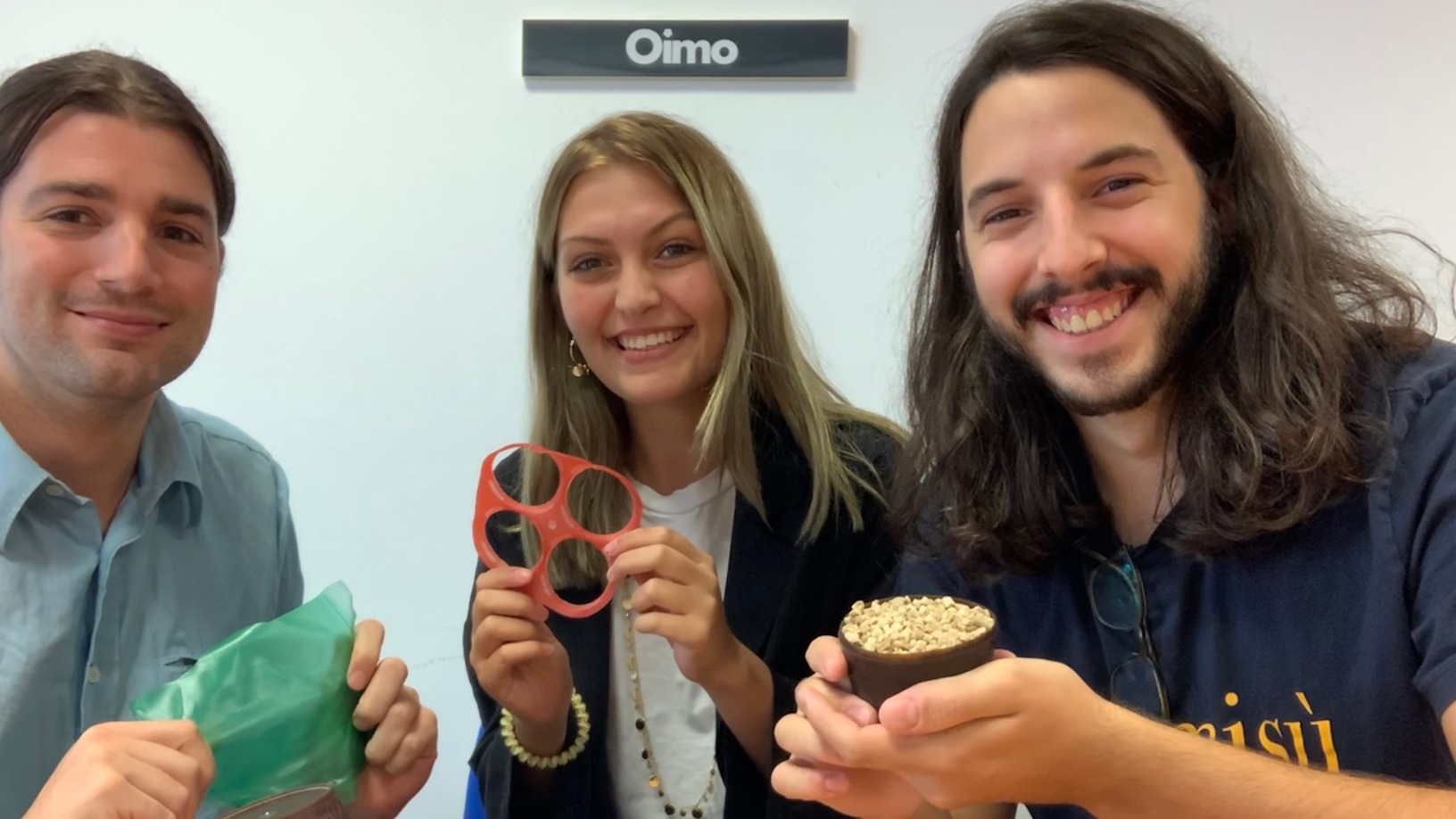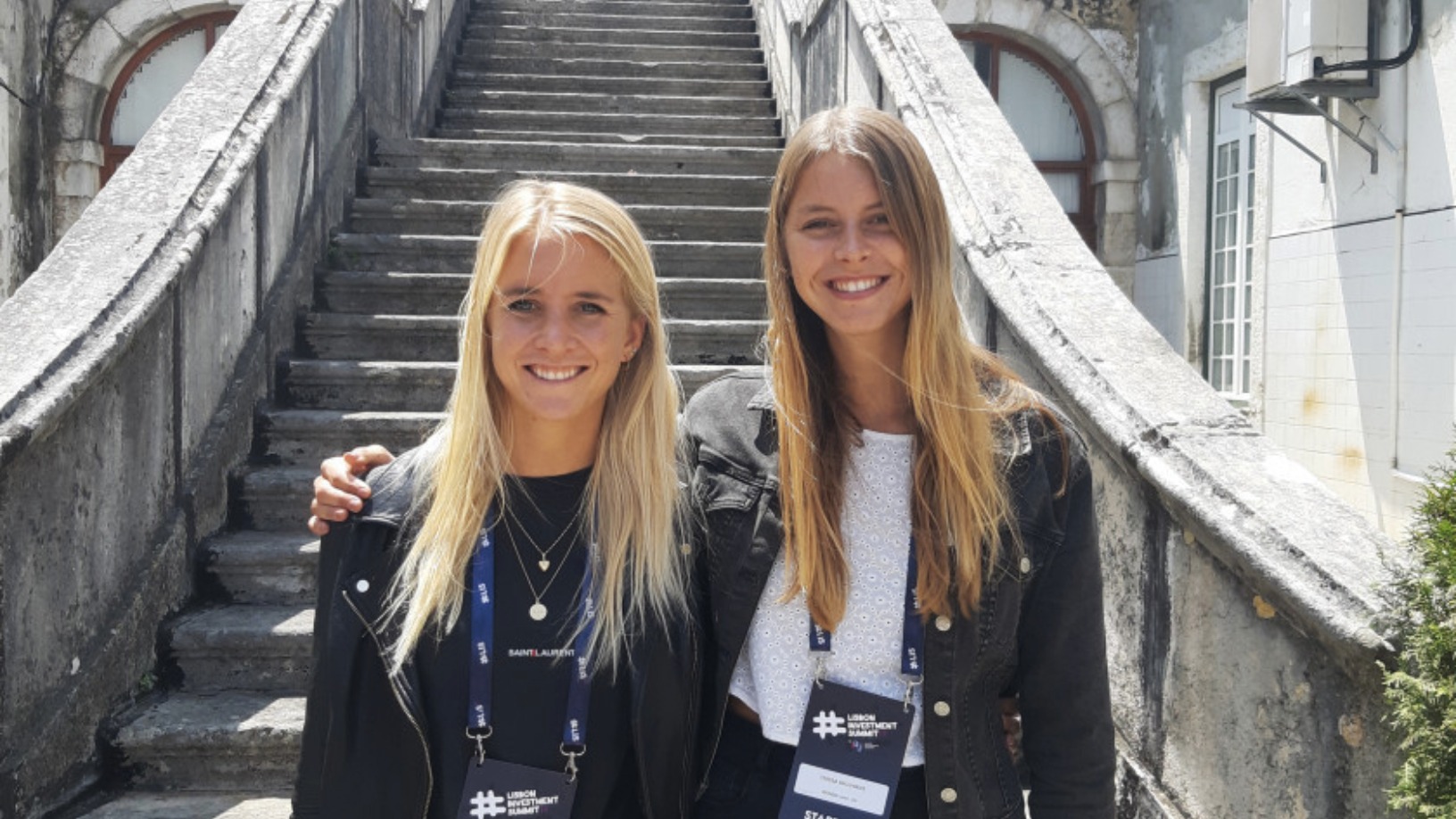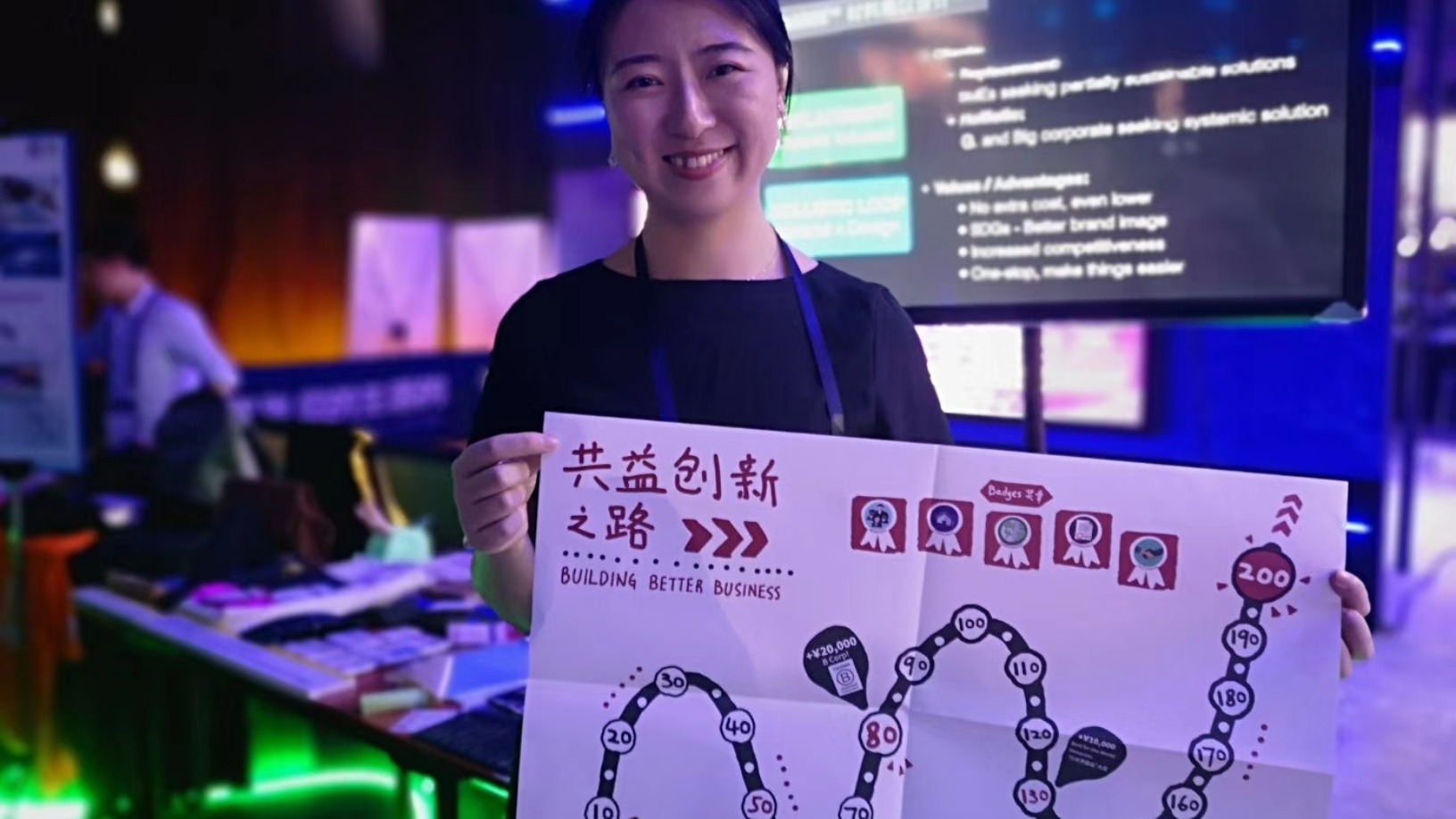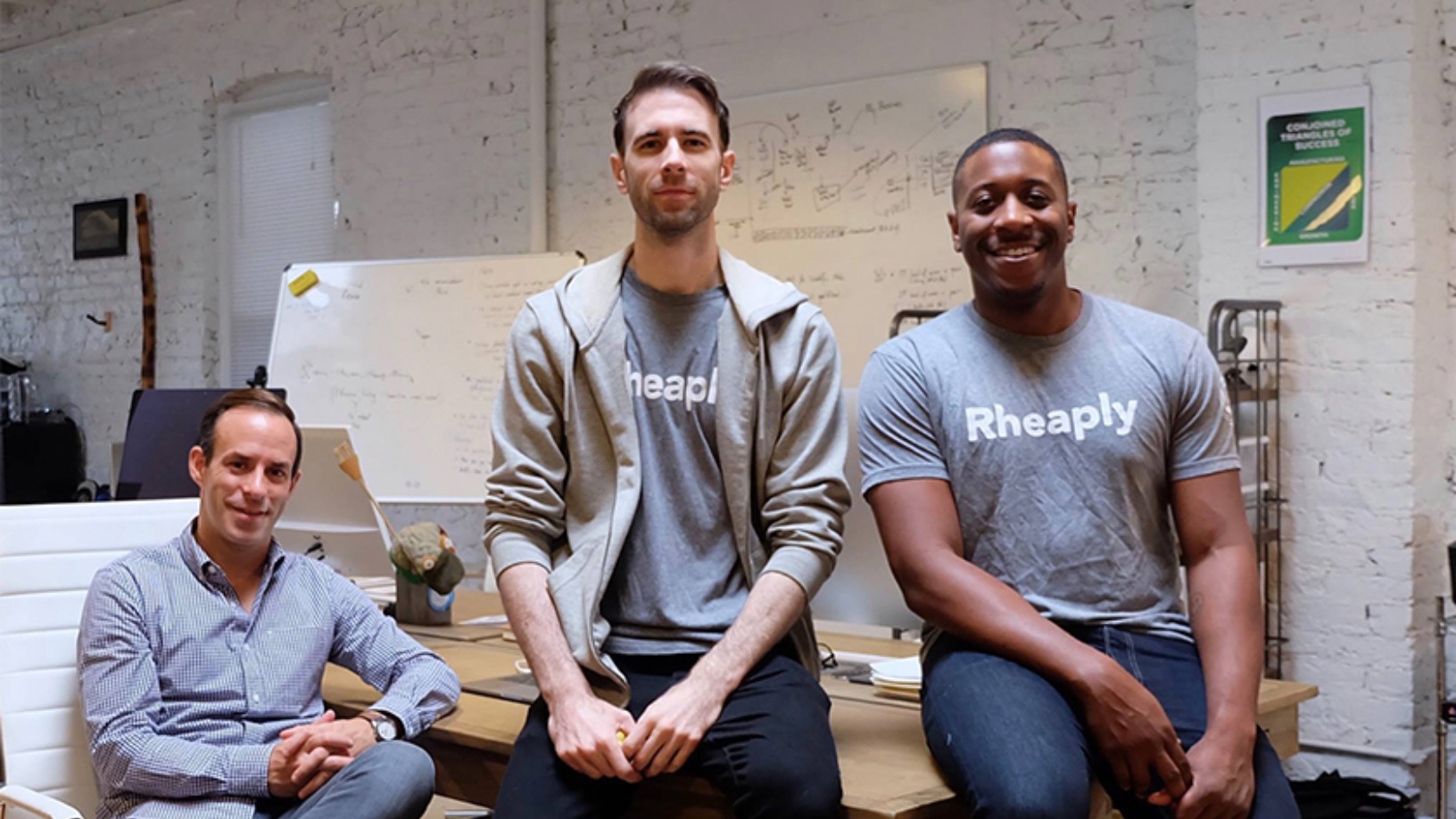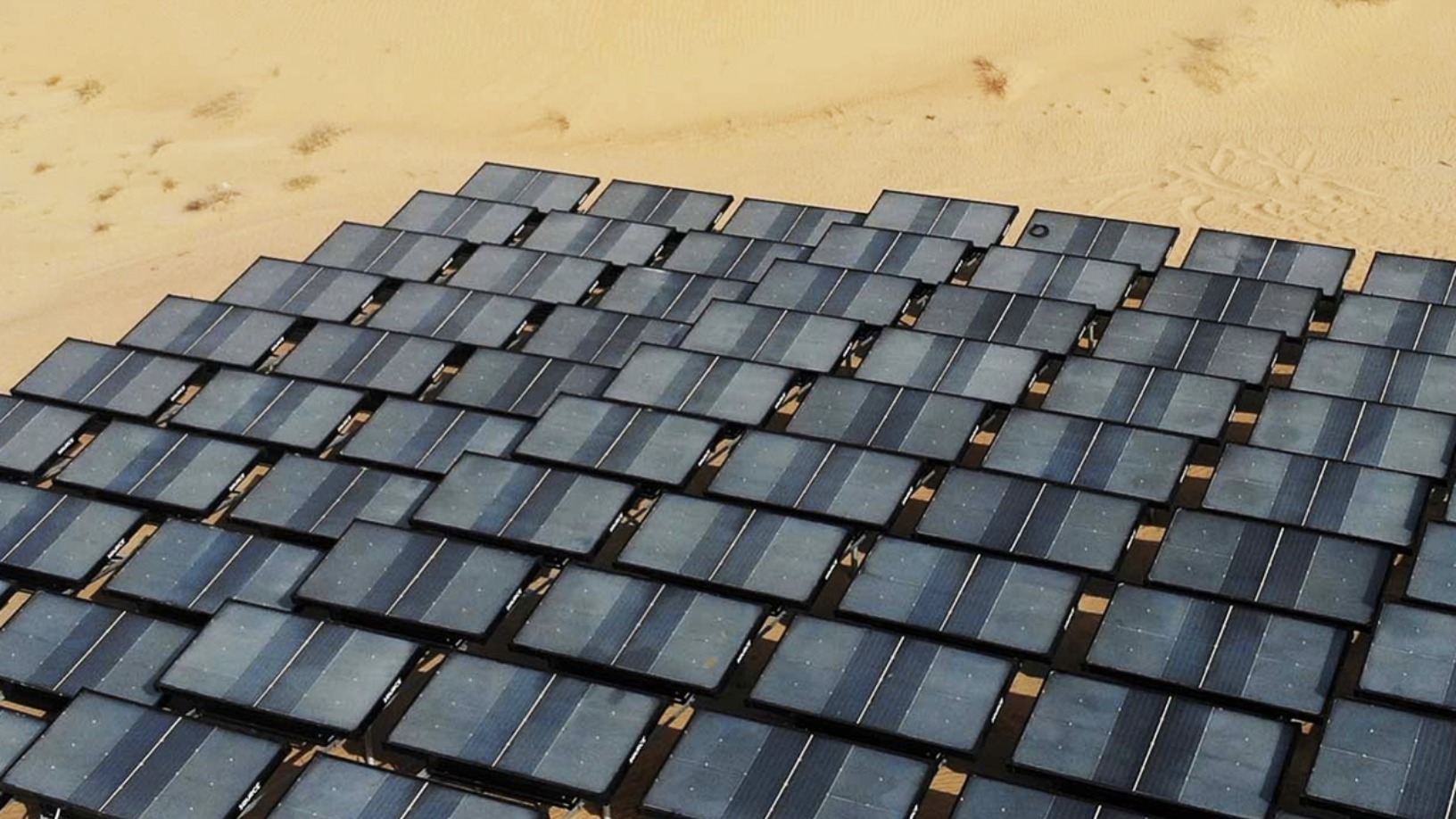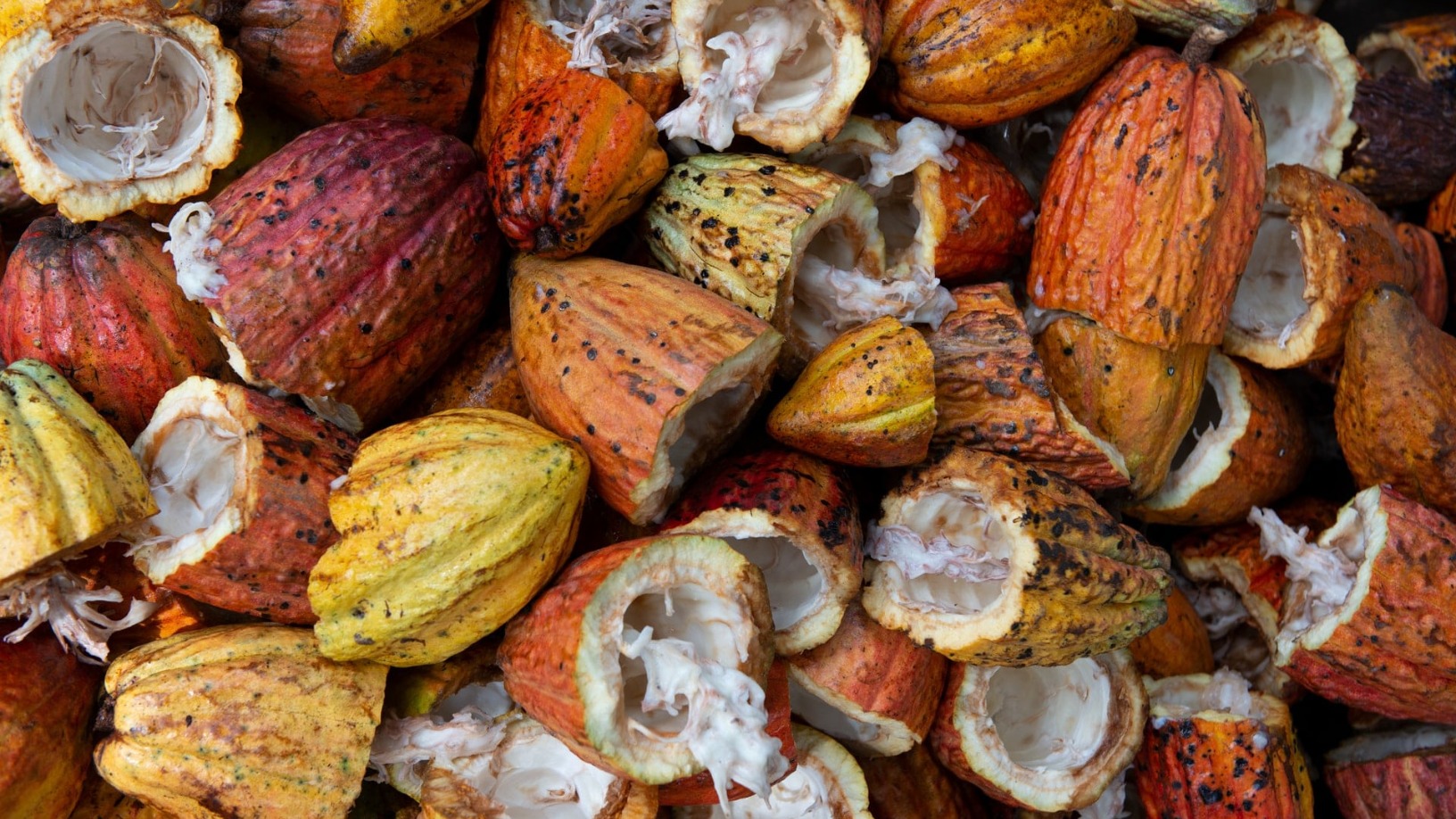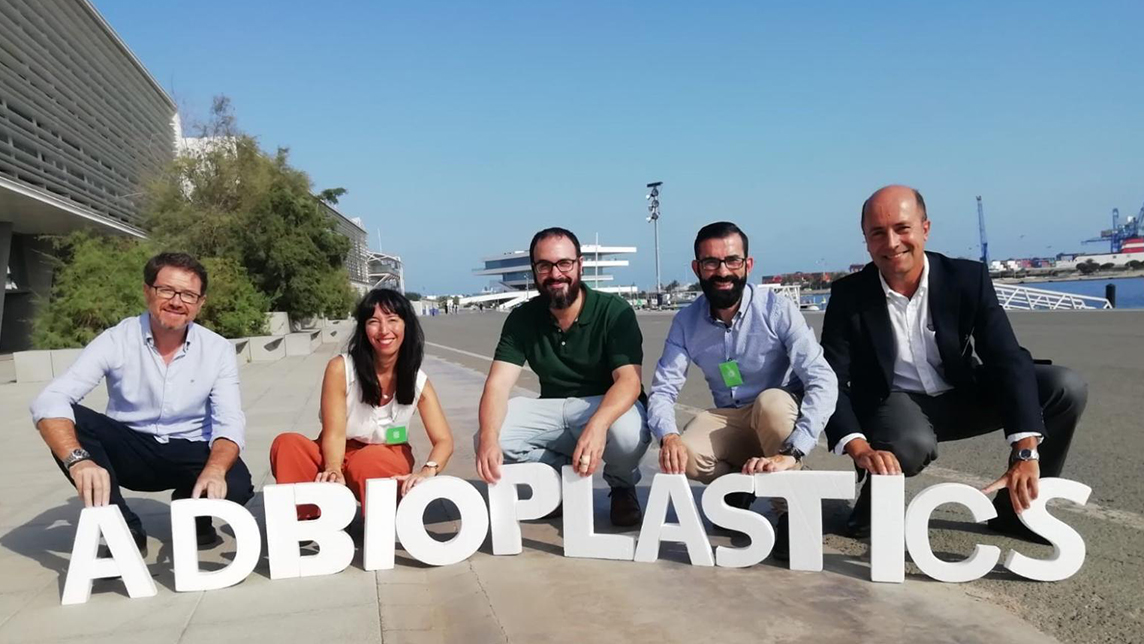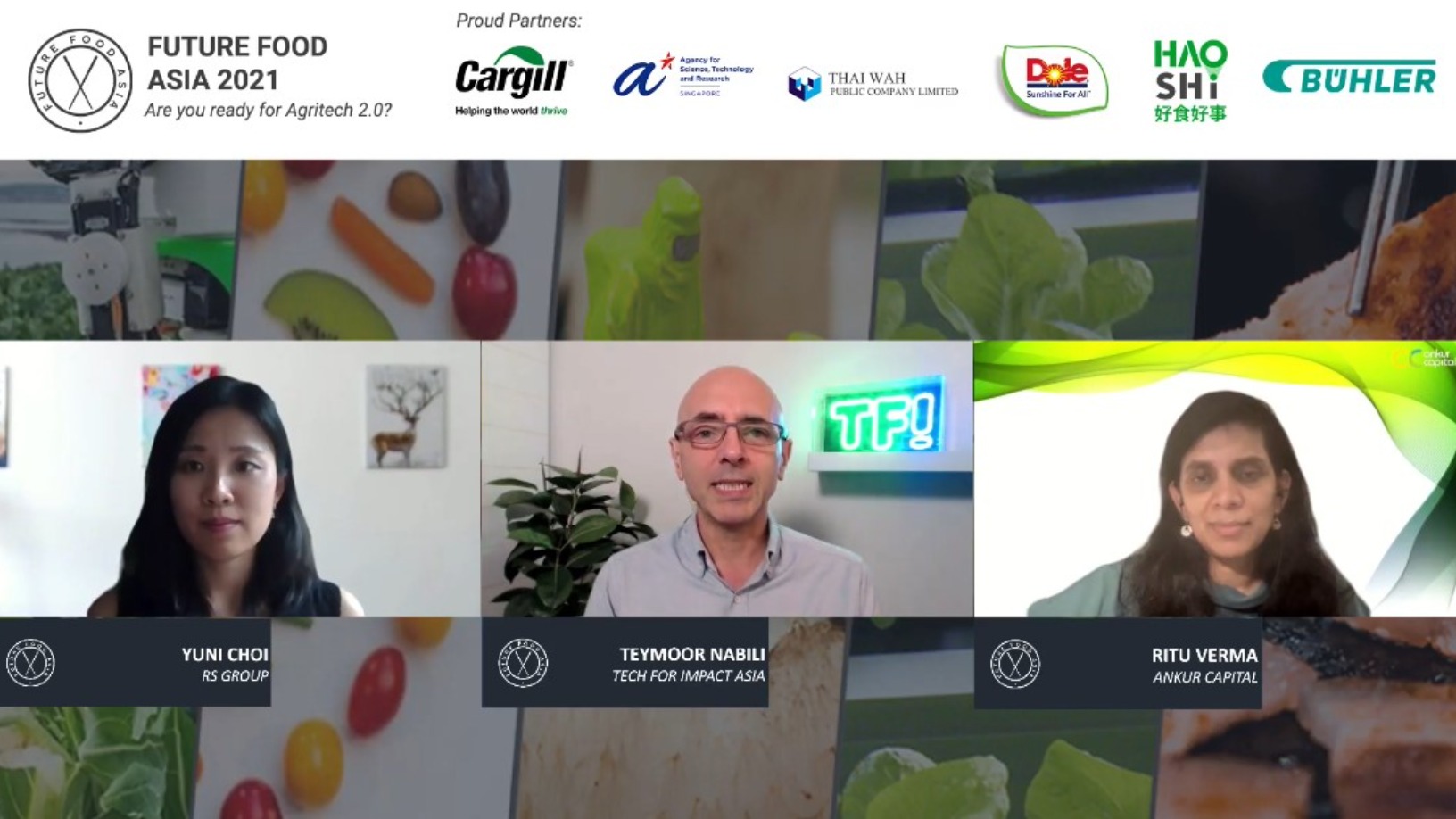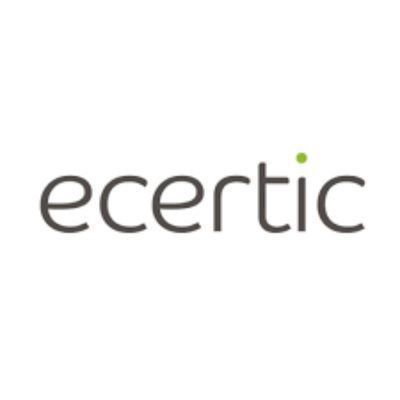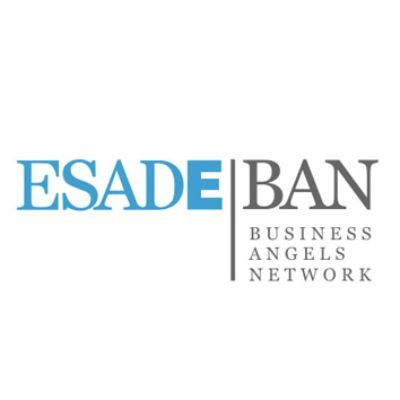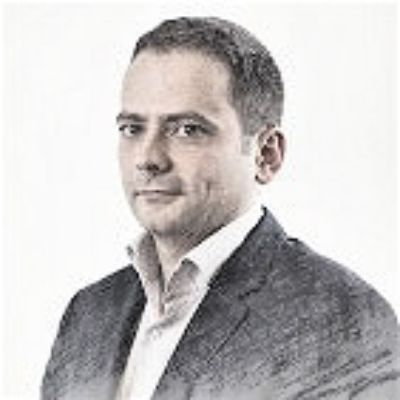Material Impact
DATABASE (81)
ARTICLES (261)
GROW is a Singapore-based food and agriculture technology accelerator for global impact-focused startups. It is financially backed by AgFunder, an agrifood tech venture investment through the AgFunder GROW Impact Fund. Grow is also supported by the Singapore Government and is an accredited mentor partner of Startup SG.
GROW is a Singapore-based food and agriculture technology accelerator for global impact-focused startups. It is financially backed by AgFunder, an agrifood tech venture investment through the AgFunder GROW Impact Fund. Grow is also supported by the Singapore Government and is an accredited mentor partner of Startup SG.
Kinara is a venture capital fund based in Indonesia. Established in 2011, it focuses on impact investments that include supporting inclusive economy initiatives and eco-friendly ventures such as Greeneration. Kinara has been managing Indonesia’s first business impact acceleration program that has produced 11 enterprises in the food security sector since 2016. Other priority sectors are microfinance, clean tech, agriculture and fisheries.
Kinara is a venture capital fund based in Indonesia. Established in 2011, it focuses on impact investments that include supporting inclusive economy initiatives and eco-friendly ventures such as Greeneration. Kinara has been managing Indonesia’s first business impact acceleration program that has produced 11 enterprises in the food security sector since 2016. Other priority sectors are microfinance, clean tech, agriculture and fisheries.
IGF is a crowdfunding platform for impact investing in Asia. It aims to partner with innovative, high-impact enterprises in need of capital to scale their businesses and, as a result, be of value to society and the environment. The fund seeks to mobilize its US$50m in investment capital to deliver affordable healthcare, cut CO2 emissions, help more than 2m people gain access to clean energy and empower women. IGF's investments range in size from US$250,000 to US$5m, and primarily take the form of equity or quasi-equity. All its investments include pre-agreed social or environmental impact targets.
IGF is a crowdfunding platform for impact investing in Asia. It aims to partner with innovative, high-impact enterprises in need of capital to scale their businesses and, as a result, be of value to society and the environment. The fund seeks to mobilize its US$50m in investment capital to deliver affordable healthcare, cut CO2 emissions, help more than 2m people gain access to clean energy and empower women. IGF's investments range in size from US$250,000 to US$5m, and primarily take the form of equity or quasi-equity. All its investments include pre-agreed social or environmental impact targets.
With over 3,000 digital scents, ScentRealm enables consumers to smell odors with a wearable; has opened its scent database and editor to the public.
With over 3,000 digital scents, ScentRealm enables consumers to smell odors with a wearable; has opened its scent database and editor to the public.
CEO and Founder of Clarity
A World Economic Forum Young Global Leader, Rebeca Minguela founded Blink, a hotel booking app that was acquired by Groupon, and Clarity.AI, a SaaS optimizing the social impact of investments. She holds an engineering degree from UPM (Technical University of Madrid) Escuela Técnica Superior de Ingenieros de Telecomunicación, and a master’s in Information Technology from the University of Stuttgart. After working at IBM, Siemens, the German Space Agency and BCG, she won a scholarship to pursue an MBA at Harvard Business School. She later led Santander Bank’s Global Digital Transformation Program. She was born in 1981 in Valladolid, Spain.
A World Economic Forum Young Global Leader, Rebeca Minguela founded Blink, a hotel booking app that was acquired by Groupon, and Clarity.AI, a SaaS optimizing the social impact of investments. She holds an engineering degree from UPM (Technical University of Madrid) Escuela Técnica Superior de Ingenieros de Telecomunicación, and a master’s in Information Technology from the University of Stuttgart. After working at IBM, Siemens, the German Space Agency and BCG, she won a scholarship to pursue an MBA at Harvard Business School. She later led Santander Bank’s Global Digital Transformation Program. She was born in 1981 in Valladolid, Spain.
CEO and founder of Koiki
Aitor Ojanguren is an industrial engineer and serial entrepreneur from Bilbao, Spain. He holds an MBA from Bauer University in Boston. He also specialized at the IESE Business School in social entrepreneurship and is an active investor in social impact tech startups.Ojanguren has over 15 years experience in the logistics sector. He founded Celeritas, a leading logistic e-commerce service company. He is CEO of Koiki, an environmentally sustainable last-mile delivery social enterprise that employs vulnerable people in Spain, which he founded in 2015.
Aitor Ojanguren is an industrial engineer and serial entrepreneur from Bilbao, Spain. He holds an MBA from Bauer University in Boston. He also specialized at the IESE Business School in social entrepreneurship and is an active investor in social impact tech startups.Ojanguren has over 15 years experience in the logistics sector. He founded Celeritas, a leading logistic e-commerce service company. He is CEO of Koiki, an environmentally sustainable last-mile delivery social enterprise that employs vulnerable people in Spain, which he founded in 2015.
Yonghua is a specialized investment company under Yongjin Group. With more than 20 years investment experience, it has invested in more than 100 companies, more than 50 of which are listed. Yonghua focuses on the most competitive companies in industries such as finance, e-commerce, education, healthcare, corporation service, new material and artificial intelligence.
Yonghua is a specialized investment company under Yongjin Group. With more than 20 years investment experience, it has invested in more than 100 companies, more than 50 of which are listed. Yonghua focuses on the most competitive companies in industries such as finance, e-commerce, education, healthcare, corporation service, new material and artificial intelligence.
Backed by €30m funding and orders from global brands, Finnish cleantech will build flagship factory to scale production of regenerated biodegradable microplastic-free textile fibers.
Backed by €30m funding and orders from global brands, Finnish cleantech will build flagship factory to scale production of regenerated biodegradable microplastic-free textile fibers.
Clinching China’s largest agritech investment of RMB 1.2bn will help drone-maker XAG compete with key players like DJI to become the market leader.
Clinching China’s largest agritech investment of RMB 1.2bn will help drone-maker XAG compete with key players like DJI to become the market leader.
Changxing Angel was founded in 2015 by the local government of Changxing county in Jiaxing city, Zhejiang province. In 2016, it set up an incubator in Hangzhou called UNI Tech-Forest . Startups in Uni Tech-Forest could enjoy the policy support of Changxing county and the tech ecosystems in Hangzhou. As at October 2019, it had more than 60 companies in its incubator, most of which are from new energy, new material, electronics and smart manufacturing sectors.
Changxing Angel was founded in 2015 by the local government of Changxing county in Jiaxing city, Zhejiang province. In 2016, it set up an incubator in Hangzhou called UNI Tech-Forest . Startups in Uni Tech-Forest could enjoy the policy support of Changxing county and the tech ecosystems in Hangzhou. As at October 2019, it had more than 60 companies in its incubator, most of which are from new energy, new material, electronics and smart manufacturing sectors.
Co-founder, CEO of Sheetgo
Based in Spain since 2016, Yannick Rault van der Vaart is a Brazilian entrepreneur with diverse work experiences in USA, Latin America and Europe. The co-founder and CEO of Sheetgo is also a board member of Impact Hub Network that runs co-working spaces in Spain and Brazil.In 2006, the graduate from the University of Miami co-founded EsMiHogar to help immigrants finance property purchases back home. In 2007, he helped Spanish company Inmoferrocarril to launch 7,600 social home mixed-use urban development "Esmihogar". In 2008, he co-founded Abramar to build low income, environment-friendly residential buildings and neighborhoods in Brazil.
Based in Spain since 2016, Yannick Rault van der Vaart is a Brazilian entrepreneur with diverse work experiences in USA, Latin America and Europe. The co-founder and CEO of Sheetgo is also a board member of Impact Hub Network that runs co-working spaces in Spain and Brazil.In 2006, the graduate from the University of Miami co-founded EsMiHogar to help immigrants finance property purchases back home. In 2007, he helped Spanish company Inmoferrocarril to launch 7,600 social home mixed-use urban development "Esmihogar". In 2008, he co-founded Abramar to build low income, environment-friendly residential buildings and neighborhoods in Brazil.
CEO of Alén Space
Guillermo Lamelas Nogueira is a telecommunications engineer who is the co-founder of Alén Space and of which he has been CEO since 2018. His previous experience in the telecommunications sector and in international startup acceleration include HTI & Berren AG in Switzerland and Karlenkaski, OY in Finland. Lamelas has also held various managerial positions at Telefónica de España S.A.U. from 2000 to 2015 and had established Impact before joining Alén Space. Guillermo studied at Spain's Vigo University and graduated with an MBA from INSEAD in 2006. He has also participated in two expert programs on cooperation and development and the Internet.
Guillermo Lamelas Nogueira is a telecommunications engineer who is the co-founder of Alén Space and of which he has been CEO since 2018. His previous experience in the telecommunications sector and in international startup acceleration include HTI & Berren AG in Switzerland and Karlenkaski, OY in Finland. Lamelas has also held various managerial positions at Telefónica de España S.A.U. from 2000 to 2015 and had established Impact before joining Alén Space. Guillermo studied at Spain's Vigo University and graduated with an MBA from INSEAD in 2006. He has also participated in two expert programs on cooperation and development and the Internet.
Founded in 2005, Fortune Link focuses on private equity investment. Its founder, Kan Zhidong was also the founder of Shenzhen Capital Group, one of the first few venture capitalists in China. As at March 2018, it had set up a number of funds and managed over 20 investment teams.With over RMB 30bn worth of assets under its management, Fortune Link mainly invests in sectors including TMT, environmental protection, advanced material, healthcare, high tech industries, culture and media.
Founded in 2005, Fortune Link focuses on private equity investment. Its founder, Kan Zhidong was also the founder of Shenzhen Capital Group, one of the first few venture capitalists in China. As at March 2018, it had set up a number of funds and managed over 20 investment teams.With over RMB 30bn worth of assets under its management, Fortune Link mainly invests in sectors including TMT, environmental protection, advanced material, healthcare, high tech industries, culture and media.
Stanford Graduate School of Business
Launched in 2015, the Stanford GSB Impact Fund invests globally in innovators and tech startups whether connected with the university or not and within the area of social impact in seven market segments: education, energy and the environment, fintech, food and agriculture, justice, healthcare, and urban development. The university-owned fund invests from the pre-seed to Series A rounds and makes investments mostly from January to April. It currently has 11 startups in its portfolio.
Launched in 2015, the Stanford GSB Impact Fund invests globally in innovators and tech startups whether connected with the university or not and within the area of social impact in seven market segments: education, energy and the environment, fintech, food and agriculture, justice, healthcare, and urban development. The university-owned fund invests from the pre-seed to Series A rounds and makes investments mostly from January to April. It currently has 11 startups in its portfolio.
Italy's first impact investment fund is focused mainly on assisting Italian startups. Its investment size ranges from €200,000 to €6m. Oltre Venture was founded in 2006 as Oltre Venture I by Luciano Balbo and Lorenzo Allevi, both pioneers in Europe's impact investing ecosystem and each with extensive experience in investment banking, corporate finance and VC firms.In 2016, the company launched a second investment vehicle (Oltre Venture II) which currently has a portfolio of more than 22 startups.
Italy's first impact investment fund is focused mainly on assisting Italian startups. Its investment size ranges from €200,000 to €6m. Oltre Venture was founded in 2006 as Oltre Venture I by Luciano Balbo and Lorenzo Allevi, both pioneers in Europe's impact investing ecosystem and each with extensive experience in investment banking, corporate finance and VC firms.In 2016, the company launched a second investment vehicle (Oltre Venture II) which currently has a portfolio of more than 22 startups.
Xampla: Making strong, low-cost biodegradable plastic from peas
Inspired by the strength of spider silk, the Cambridge University spinoff has produced a plant-based, completely compostable alternative to microplastics
Oceanium: Supporting sustainable seaweed farming
Scottish startup Oceanium has developed a proprietary biorefinery and processing model to create seaweed-based compostable materials, alt-protein ingredients and nutraceuticals for use across industry verticals
Beyond Leather Materials: Turning apples into alt-leather for sustainable fashion
Through its Leap brand, the Danish startup cuts food waste by turning apples junked in cider factories into affordable vegan leather for the $100bn leather market
Auara: Social enterprise and environmental sustainability in a bottle
Auara, with its 100% recycled-plastic mineral water bottles, aims to reduce its manufacturing carbon footprint while helping the most water-stressed citizens
Petit Pli: Origami-inspired clothes that still fit, even after the body has grown
Founded by a young aeronautical engineer, Petit Pli produces stylish, sustainable pleated garments made from recycled plastic that expand up to seven sizes
Oimo: Biodegradable marine-based bioplastics for environmentally friendly food packaging
Its pellets already work well in current factory machinery, so Oimo wants to scale when the EU’s ban on single-use plastics kicks in next year
Mi Terro turns milk waste into eco-friendly clothing and packaging
With food giants like Danone, Arla and Dole as partners, US-Sino startup Mi Terro plans to extend its technology to plant-based food waste like soy to get plastic and fiber alternatives
Wondaswim recycles dumped fishing nets to make sustainable swimwear, reduce ocean pollution
Lisbon-based startup by German co-founders creates sustainable swimwear for all body sizes, targeted at millennials
NANOxARCH: Pioneering awareness and use of sustainable materials in China
Founder Lei Yuxi reckons Covid-19 could usher China into a new era of sustainability, as her startup seeks to make sustainable materials more affordable
Rheaply: Pioneering B2B asset reuse through technology
Through its SaaS platform, this Chicago-based startup finds success in the under-served corporate second-hand market, essential to any successful circular economy, recently landing $8m Series A
SOURCE Global's solar-run panels turn air into drinking water
The US startup’s adapted solar panels extract water vapor from the air to produce potable water, a vital resource for distressed communities in disaster zones and remote areas
QOA: Gourmet guilt-free chocolate, without the cocoa
Munich-based QOA transforms industrial food waste into vegan chocolate, enabling consumers to avoid the sustainability and ethical issues of cocoa production
ADBioplastics primed to help EU manufacturers transition to circular economy
ADBioplastics has developed a biodegradable and compostable bioplastic additive for use in food packaging and is seeking up to €5m in funding
Future Food Asia 2021: Impact assessments – getting the metrics right
Common impact measures are useful but each situation requires specific, sometimes subjective considerations. The priority is to gauge if the impact has led to positive changes
Start with the little things: 5 Indonesian social impact startups
From providing student loans to empowering marginalized groups and farmers, these Indonesian startups are revitalizing local communities
Sorry, we couldn’t find any matches for“Material Impact”.
